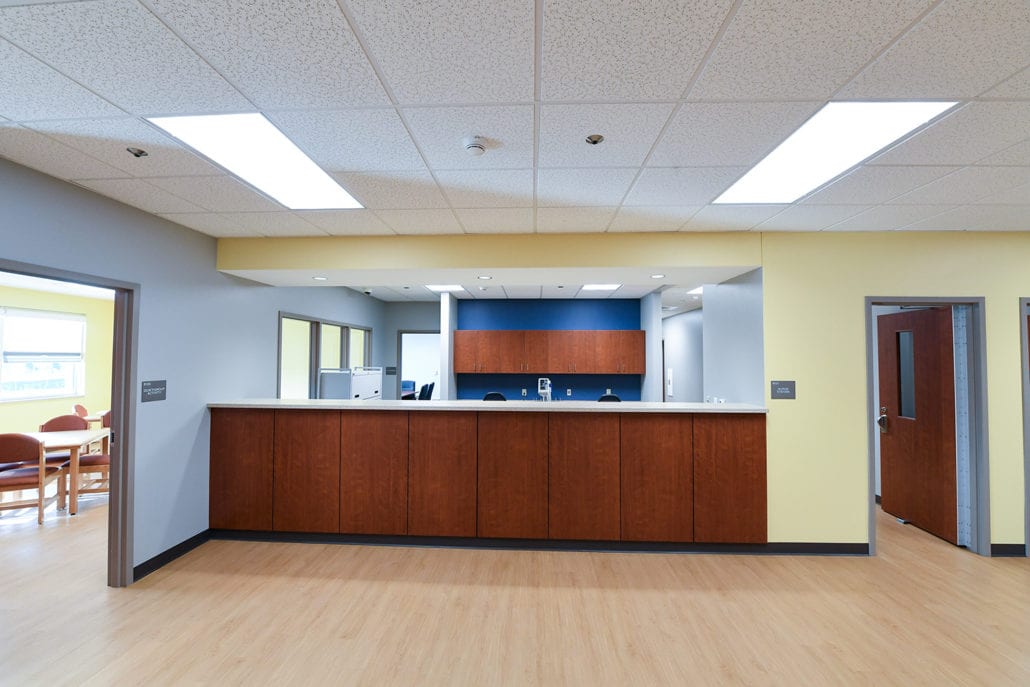Silver Oaks Behavioral Hospital offers FREE Assessments 24/7, call us toll-free at
Frequently Asked Questions
at Silver Oaks Behavioral Hospital
Please call (844) 580-5000 with any questions not found in our FAQs and we will be happy to help.
It is not uncommon to have questions about mental health or substance use disorder treatment if you or a loved one are showing signs and symptoms. This FAQ section is designed to answer your questions about what happens before, during and after an inpatient or outpatient treatment period.
What is the Intake Process Like and Can I Schedule an Appointment?
No cost assessments are offered at Silver Oaks 24 hours a day, 7 days a week by calling (844) 580-5000. Walk in appointments are also available. We will ask you to complete a small amount of paperwork to gather your medical history and basic information. You will meet with a licensed mental health professional to discuss your concerns and to provide any additional information that may be needed. Following the assessment, the intake worker will make a treatment recommendation and discuss your options. We will also provide additional community resources if you need treatment that is not provided at our hospital.
Do I Need a Referral from my Doctor or Other Medical Professional to be Seen at Silver Oaks?
Individuals can be seen without a referral from their doctor or other medical professional. Walk in appointments are preferred and you can get more information about this by calling (844) 580-5000.
What Should I Bring With me to the Hospital?
- Form of ID. A state issued ID, such as a driver’s license, or a federal ID, such as a passport.
- Insurance card
- Emergency contact information
- Current list of prescription medications
- List of important phone numbers
- Power of attorney or guardianship paperwork if applicable
- Documents proving legal guardianship for a minor if applicable
How do I Contact my Loved One or Client if They are a Patient at the Hospital?
Patient privacy is a priority at Silver Oaks Behavioral Hospital and we strictly abide by HIPAA (Health Insurance Portability and Accountability Act). It is our goal to include family, friends and others who may be the primary support for the patient in our care, but we do value the privacy of each patient and abide by HIPAA laws.
Each patient admitted to the hospital is given an identification number that is unique to them. They have the opportunity to share their number with individuals of their choosing. If you do not have this number, you may leave a message for the patient. We cannot confirm whether someone is being treated in our facility, but if they are a patient we will relay your message. The patient will then choose whether to provide you with their ID or to return your phone call. It is their right to keep their treatment confidential and there is a possibility your phone call may not be returned.
What Kind of Therapy is Used at Silver Oaks?
We believe that each patient’s mental health journey is different. We have adopted a therapeutic approach which is rooted in evidence-based treatment modalities. Specialty programs are available for certain groups in addition to our proven treatment models which allows for patients with similar concerns to process in a group setting under the care of a psychiatrist.
Cognitive Behavior Therapy (CBT)
Cognitive Behavior Therapy (CBT) is a short-term, present oriented, evidenced-based therapy used to treat a wide variety of psychiatric disorders and psychological problems including mood disorders and anxiety disorders. CBT is individually tailored to each individual to build a strong therapeutic alliance and emphasizes collaboration and active participation from the treatment team and the patient. CBT is also a time-limited approach to therapy designed to focus on the present time and teaches the patient to eventually be his or her own therapist. One of the core values of CBT is to teach patients how to identify, evaluate, and respond to their dysfunctional thoughts and beliefs in order to change the individual’s thoughts, mood, and behaviors to be more functional and healthy.
Dialectical Behavior Therapy (DBT)
The program also teaches skills rooted in Dialectical Behavior Therapy (DBT) including mindfulness, interpersonal effectiveness, emotion regulation, and distress tolerance. Each of these skills have specific coping strategies that are taught to patients in the in group sessions and is then practiced on the unit to promote the transfer of skills to the patient’s everyday life. Homework and practice are essential to CBT and DBT and are assigned to patients by the program therapist.
What Other Services are Provided at the Hospital?
Medication Management – Our attending psychiatrist will conduct a patient assessment and prescribe medication if needed. They will also supervise the impact of the medication and make adjustments as necessary. Each patient will also be seen by an internal medicine or family practitioner for a history and physical exam within 24 hours of admission.
Case Management – Each patient is given a licensed mental health professional that will assist with aftercare coordination, family and referring professionals to help the patient transition out of inpatient care.
Group Therapy – Patients meet with a licensed therapist on a daily basis in a group setting. This type of therapy helps patients monitor and reflect on their feelings, thoughts and actions in a safe environment.
Family Therapy – Involving supportive members of the patient’s family can be an effective method for reducing mental health symptoms. A family meeting will be arranged if the patient and the treatment team determine there would be a therapeutic benefit.
Recreational Therapy – This type of therapy is used to help patients with self-expression, stress management, problem solving, resource education and social skills. Each session is led by a certified recreation therapist.
Psycho-Education Group – Patients learn more about their diagnosis and receive education. This may include medication stabilization, general wellness and behavior management techniques.
Process Group – Patients have the opportunity to share their experiences and feelings with other patients. This provides a safe environment and a chance to relate with others who may have had similar experiences.
School – Adolescents needing hospitalization, or that are part of our partial hospitalization program, will attend school Monday through Friday with a teacher to assist students with their school work so they don’t fall behind.
Will my Insurance Cover my Care? What if I Don’t Have Insurance?
Silver Oaks Behavioral Hospital accepts many insurance types. If you do not have insurance, or would like to speak with a financial counselor, call (844) 580-5000.
What are your Visitation Hours?
Silver Oaks Behavioral Hospital understands the importance of providing support and comfort to your loved ones who may be patients at our hospital. We provide patient visitation times and encourage family and other primary support givers to visit. Refer to the visitation guidelines below and please call 844-580-5000 to find out when visitation days and times are scheduled.
VISITATION GUIDELINES
o NO CELL PHONES, CAMERAS, LAPTOPS, OR OTHER TYPES OF RECORDING DEVICES.
o NO CANNED/GLASS DRINKS
o NO HATS
o NO KEYS
o PLEASE KEEP YOUR PURSES IN YOUR CAR IF POSSIBLE.
o LIMIT OF VISITORS PER PATIENT IS TWO (2) AT ONE TIME. o AGE LIMIT: NO ONE UNDER 18 YEARS OLD.
o NO OUTSIDE FOOD ALLOWED.
o STAFF MAY TERMINATE VISITATION AT ANY TIME IF CONTINUING THE VISIT IS CLINICALLY CONTRAINDICATED OR IF A PATIENT OR VISITOR BECOMES DISRUPTIVE.
**PLEASE NOTE: Any visits outside of scheduled hours require a physician’s order and notification of the nursing supervisor before a visit.



